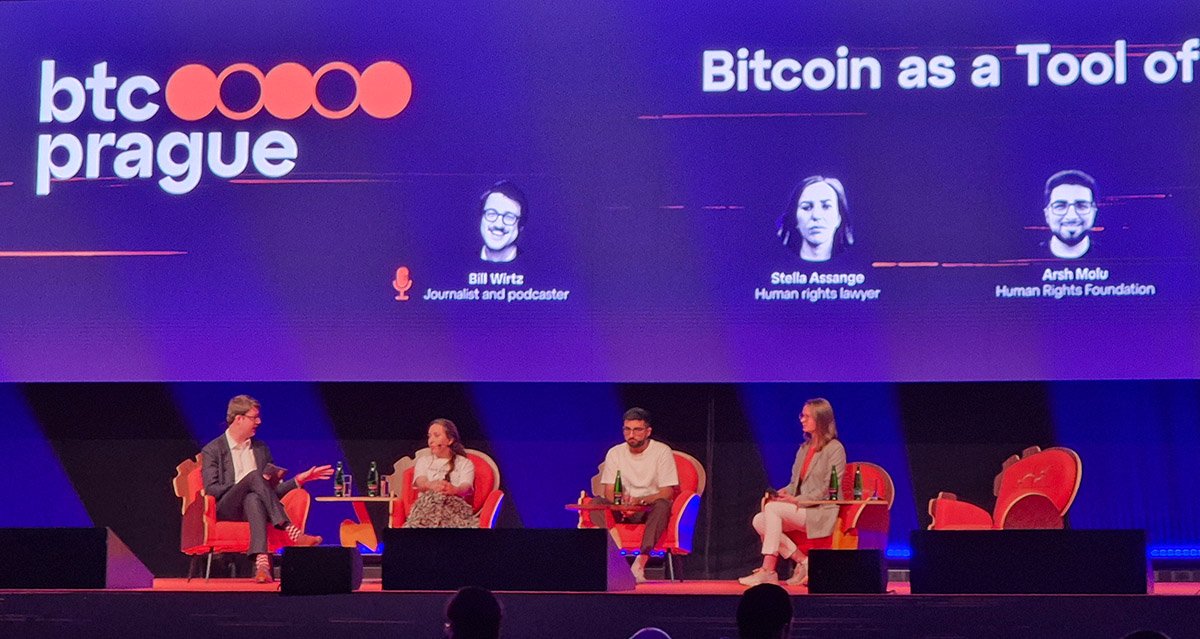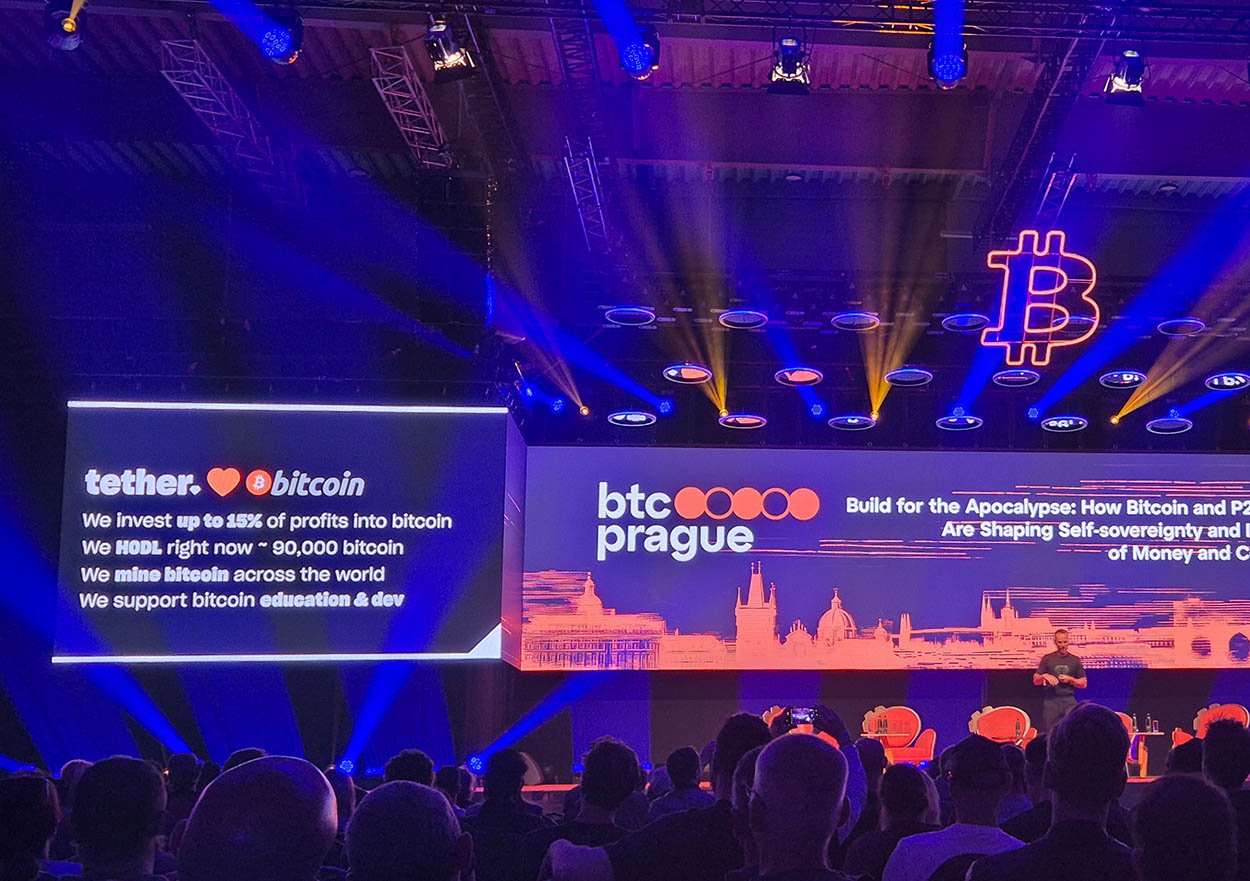BTC Prague, Europe’s premier Bitcoin-only event, recently concluded its annual gathering in the stunning city of Prague for the second time.
With over 10,000 attendees and a lineup of influential speakers, the conference provided a platform for thought-provoking discussions, technological advancements, and insights into the world of Bitcoin.
The range of topics was fairly wide, including AI, politics, philosophy, flag theory/hacking the state, human rights activism, cypherpunks and more, while many of the talks were of high political relevance.
Prague, often referred to as “Bitcoin’s capital” due to its long history with cypherpunks and Bitcoin events, hosted the BTC Prague event this year and plans to do so again in 2025.
Let’s delve into the key takeaways from this year’s event.
Michael Saylor’s 21 Rules of Bitcoin
Michael Saylor, the Executive Chairman of MicroStrategy and famous Bitcoin advocate, shared his wisdom with the audience in the form of 21 rules. Notable among them are:
- “Only buy bitcoin with the money you CANNOT afford to lose.”
- “You will never be done learning about Bitcoin.”
- “Everyone is against Bitcoin before they are for it.”
Bitcoin and Human Rights
The general consensus was: Bitcoin is so much more than just “numbers go up”. Human rights activists worldwide rely on Bitcoin for fundraising and payroll purposes.
In countries like Belarus, Iran, Nicaragua, and Afghanistan, where dictatorships have complete control over the banking system, Bitcoin offers the best alternative. As the Human Rights Foundation put it, “If we don’t defend our rights, we’re going to lose them.”
Stella Assange, wife of the imprisoned WikiLeaks founder Julian Assange, corroborated this by emphasizing how WikiLeaks was Bitcoin’s first major use-case for payments, and that on that same day in June exactly 13 years ago, WikiLeaks started accepting bitcoin.

Proof of Work
In his keynote speech, Jack Mallers discussed the unique nature of Bitcoin compared to other digital currencies, specifically Ethereum, Solana, and Cardano.
He explained the concept of proof of work — a physical aspect of Bitcoin — that is crucial for coordinating the network and preventing double-spending.
Mallers also explored the differences between abstract and physical power, using examples from literature, computer programming, and the digital world.
He warned against reification, and emphasized that there is no substitute for physical reality (unlike what Vitalik Buterin of Ethereum claims).
Mallers argued that Bitcoin’s connection to the physical world through proof of work is a key aspect of its security and value, contrasting it with Ethereum’s proof-of-stake system and its lack of physical constraints.
Tether’s Unexpected Role
Tether, the company issuing USDT — a stablecoin pegged to the US dollar — played a surprising role at a Bitcoin-only conference. With a market cap exceeding $112 billion, Tether’s impact extends beyond its controversial reputation.
According to Paolo Ardoino of Tether, more than 350 million people use USDT in developing countries, essentially banking the unbanked. USDT rather serves as an easy entry-point for those people into Bitcoin, with Tether actively promoting and funding Bitcoin education worldwide.

Trezor Safe 5 Unveiled
Trezor, a leading hardware wallet provider from Czechia, introduced the Trezor Safe 5 during the conference.
Attendees witnessed the latest advancements in secure digital asset storage. The Safe 5 promises enhanced features, such as better screen protection, a new backup standard and improved usability.
Bitcoin Mining and Energy
The mining sector in the US is facing challenges due to Biden’s proposed 30% tax on Bitcoin mining.
Participants largely concluded that this tax would stifle mining operations in the US and drive it out of the country whereas a win for Trump would likely be more positive for Bitcoin mining and Bitcoin in general.
Related: Donald Trump’s Bitcoin Bet Signals a New Chapter in American Politics
Concerning the typical Bitcoin mining’s energy debate, it was pointed out that there is basically no other industry that is being attacked because of their energy usage. After all, even all the tumble dryers in California together use up more energy than Bitcoin mining.
Privacy and Cypherpunk Values
Privacy advocates expressed concern over recent government crackdowns on privacy tools. Amongst others, Wasabi wallet, known for its privacy-enhancing features, had to shut down its coinjoin services recently.
Adam Back, a prominent figure in the Cypherpunk movement, emphasized the importance of the movement and its original values.
He highlighted that while physical cash preserves some privacy in the physical world, it is becoming more and more unusable, thus privacy and individual freedom on the Internet are becoming more important than ever.
Nostr and Satlantis
Nostr seems to be becoming more present in the conference and in people’s conversations. It seems to be on its way of becoming the Internet’s identity and trust layer, while its current main application still lies in decentralized social media.
Satlantis was the latest project built on Nostr that was announced at the conference and received a lot of interest.
It is a travel and community social network, envisioning to unite Nomad List, Facebook Groups, Telegram, TripAdvisor and Meetup.com.
Bitcoin Education
During a panel about Bitcoin education, speakers encouraged the audience to pay with bitcoin whenever possible and change their perspective about it: Instead of regretting giving some bitcoin away, one should think of it as showing the business that accepts BTC an extra amount of respect and appreciation.
Bitcoin is Beauty
Aleks Svetski drew an intriguing parallel between beauty and Bitcoin. Both require low time preference – patience and a long-term perspective.
Most of the truly beautiful architecture and art pieces originate from periods with a much lower time-preference than nowadays in our fiat system. Perhaps, as he suggested, beauty can indeed save the world.
Beyond technology and certainly just as beautiful, the popular “Satoshi Rockamoto” side event was hosted in a nightclub where attendees reveled in live music performances by Bitcoin rock star talents and DJ sets, and could participate in impromptu jam sessions.
Mark your calendars! BTC Prague 2025 is scheduled for June 19 to 21.
Whether you’re a seasoned Bitcoin enthusiast or a curious newcomer, BTC Prague always leaves a lasting impression, with a conference experience right how it should be: valuable insights, great networking, and lots of fun.
As the world clearly needs more decentralization, events like these play a crucial role in how our collective future will look like.










